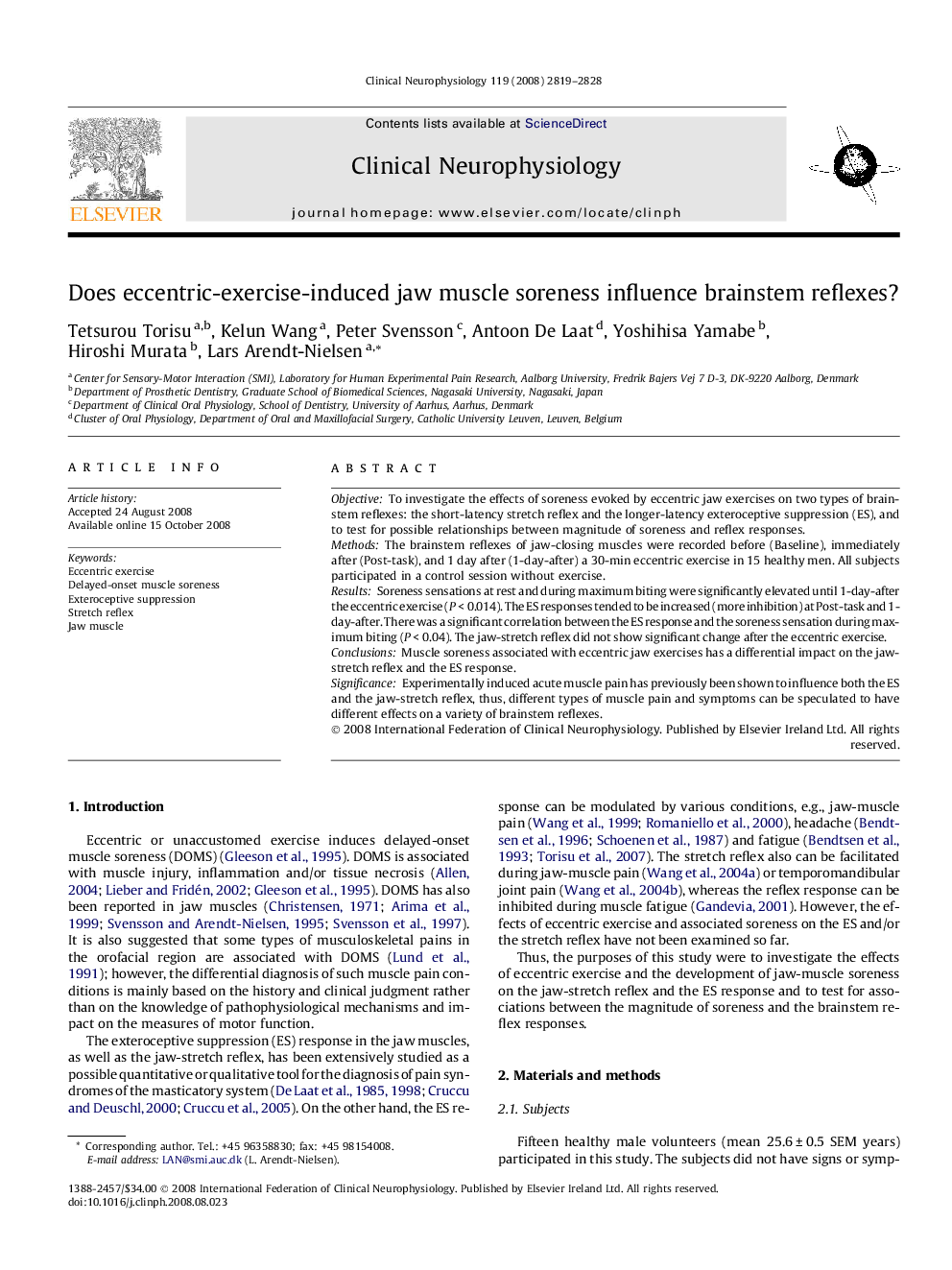| Article ID | Journal | Published Year | Pages | File Type |
|---|---|---|---|---|
| 3047566 | Clinical Neurophysiology | 2008 | 10 Pages |
ObjectiveTo investigate the effects of soreness evoked by eccentric jaw exercises on two types of brainstem reflexes: the short-latency stretch reflex and the longer-latency exteroceptive suppression (ES), and to test for possible relationships between magnitude of soreness and reflex responses.MethodsThe brainstem reflexes of jaw-closing muscles were recorded before (Baseline), immediately after (Post-task), and 1 day after (1-day-after) a 30-min eccentric exercise in 15 healthy men. All subjects participated in a control session without exercise.ResultsSoreness sensations at rest and during maximum biting were significantly elevated until 1-day-after the eccentric exercise (P < 0.014). The ES responses tended to be increased (more inhibition) at Post-task and 1-day-after. There was a significant correlation between the ES response and the soreness sensation during maximum biting (P < 0.04). The jaw-stretch reflex did not show significant change after the eccentric exercise.ConclusionsMuscle soreness associated with eccentric jaw exercises has a differential impact on the jaw-stretch reflex and the ES response.SignificanceExperimentally induced acute muscle pain has previously been shown to influence both the ES and the jaw-stretch reflex, thus, different types of muscle pain and symptoms can be speculated to have different effects on a variety of brainstem reflexes.
